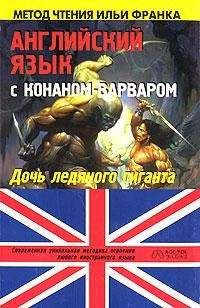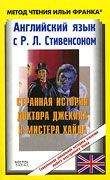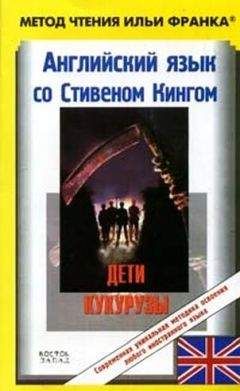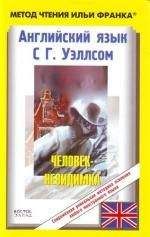hour [ˈauə], thrice [Ɵraɪs], straight [streɪt]
An hour later, night had fallen over the savanna, save for a narrow band of sunset glow along the western horizon, against which an occasional small, gnarled tree of the veldt stood up in black silhouette. And Conan had almost reached the limits of his endurance. Thrice lionesses had rushed upon him out of the shadows to right or to left. Thrice he had driven them off with the flying death of his arrows. Although it was hard to shoot straight in the gathering dark, an explosive snarl from the charging cats had thrice told him of hits, although he had no way of knowing whether he had slain or only wounded the deadly predators.
But now his quiver was empty, and he knew it was only a matter of time before the silent marauders pulled him down (но теперь его колчан был пуст, и он знал, что это было лишь делом времени, прежде чем молчаливые мародеры завалят его; to know — знать; to pull down — сталкивать, сбрасывать; сбивать с ног). There were eight or ten lions on his track now, and even the grim barbarian felt a pang of despair (/там/ было восемь или десять львов на его следе = шли по его следу теперь, и даже мрачный варвар почувствовал боль отчаяния). Even if his mighty sword accounted for one or two of the attackers, the rest would tear him to gory pieces before he could slash or thrust again (даже если /бы/ его могучий меч убил одного или двух /из/ нападающих, остальные разорвали бы его на кровавые куски, прежде чем он мог бы рубануть или ударить снова = нанести рубящий или колющий удар; to account for — убить, уничтожить; to thrust — колоть, пронзать, наносить колющий удар). Conan had encountered lions before and knew their enormous strength, which enabled them to pick up and drag a whole zebra as easily as a cat does a mouse (Конан сталкивался /со/ львами прежде и знал их огромную силу, которая позволяла им поднять и потащить целую зебру так же легко, как кошка делает = несет мышку; does здесь заменяет смысловой глагол, чтобы исключить повтор). Although Conan was one of the strongest men of his time, once a lion got its claws and teeth into him that strength would be no more effective than drat of a small child (хотя Конан был одним из сильнейших людей своего времени, однажды = когда лев вонзит свои когти и зубы в него, эта сила будет не более действенной, чем ругательство: «провались; чтоб тебя» малого ребенка; drat — провались ты! пропади ты пропадом!).
quiver [ˈkwɪvə], despair [dɪsˈpɛə], mouse [maus]
But now his quiver was empty, and he knew it was only a matter of time before the silent marauders pulled him down. There were eight or ten lions on his track now, and even the grim barbarian felt a pang of despair. Even if his mighty sword accounted for one or two of the attackers, the rest would tear him to gory pieces before he could slash or thrust again. Conan had encountered lions before and knew their enormous strength, which enabled them to pick up and drag a whole zebra as easily as a cat does a mouse. Although Conan was one of the strongest men of his time, once a lion got its claws and teeth into him that strength would be no more effective than drat of a small child.
Conan ran on (Конан побежал дальше / продолжал бежать). He had been running now for the better part of an hour, with a long, loping stride that ate up the leagues (он бежал теперь /уже/ большую часть часа длинным размашистым шагом, который пожирал лиги). At first he had run effortlessly (сначала он бежал без усилий; effort — усилие), but now the grueling exertions of his flight through the black jungles and his eight-day trek across the plain began to take their toll (но теперь изнуряющие усилия его пробега через черные джунгли и его восьмидневный переход по равнине начал иметь /их/ последствия = начали сказываться: «начали брать свою пошлину / дань»). His eyes blurred; the muscles of his legs ached (его глаза затуманились, мускулы его ног болели). Every beat of his bursting heart seemed to drain away the strength remaining in his giant form (каждый удар его разрывающегося сердца, казалось, высасывает/истощает силу, оставшуюся в его гигантской фигуре).
part [pɑ: t], began [bɪˈɡæn], drain [dreɪn]
Conan ran on. He had been running now for the better part of an hour, with a long, loping stride that ate up the leagues. At first he had run effortlessly, but now the grueling exertions of his flight through the black jungles and his eight-day trek across the plain began to take their toll. His eyes blurred; the muscles of his legs ached. Every beat of his bursting heart seemed to drain away the strength remaining in his giant form.
He prayed to his savage gods for the moon to emerge from the dense, stormy clouds that veiled most of the sky (он молился своим дикарским богам, чтобы луна вышла: «для луны выйти» из плотных грозовых туч, которые скрыли большую часть неба; veil — покрывало, вуаль). He prayed for a hillock or a tree to break the gently rolling flatness of the plain, or even a boulder against which he could set his back to make a last stand against the pride (он молился, чтобы холмик или дерево нарушили ровно тянущуюся плоскость равнины, или даже глыба, к которой он мог прислонить свою спину, /чтобы/ оказать последнее сопротивление /против/ прайду).[15]
savage [ˈsævɪʤ], emerge [ɪˈmə: ʤ], stormy [ˈstɔ: mɪ]
He prayed to his savage gods for the moon to emerge from the dense, stormy clouds that veiled most of the sky. He prayed for a hillock or a tree to break the gently rolling flatness of the plain, or even a boulder against which he could set his back to make a last stand against the pride.
But the gods heard not (но боги не услышали). The only trees in this region were dwarfish, thorny growths (единственными деревьями в этом районе были карликовые колючие деревца: «поросли»; dwarf — карлик; thorn — колючка, шип), which rose to a height of six or eight feet and then spread their branches out horizontally in a mushroom shape (которые поднимались на высоту шести или восьми футов = шести-восьми футов, а потом простирали свои ветви горизонтально в форме гриба). If he managed to climb such a tree despite the thorns (если бы он смог забраться на такое дерево, несмотря на колючки), it would be easy for the first lion to reach the base to spring upon him from below and bear him to the ground in one leap (/это/ было бы легко для первого льва — достичь основания, /чтобы/ прыгнуть на него снизу и стащить его на землю одним прыжком; to manage — смочь, умудриться). The only hillocks were termite nests (единственными холмиками были термитные гнезда = термитники), some rising several feet in height but too small for purposes of defense (некоторые поднимались /на/ несколько футов в высоту, но /были/ слишком малы для целей обороны). There was nothing to do but run on (/там/ было ничего делать = делать было нечего,[16] кроме как бежать дальше / продолжать бежать).
termite [ˈtə: maɪt], purpose [ˈpə: pəs], defense [dɪˈfens]
But the gods heard not. The only trees in this region were dwarfish, thorny growths, which rose to a height of six or eight feet and then spread their branches out horizontally in a mushroom shape. If he managed to climb such a tree despite the thorns, it would be easy for the first lion to reach the base to spring upon him from below and bear him to the ground in one leap. The only hillocks were termite nests, some rising several feet in height but too small for purposes of defense. There was nothing to do but run on.
To lighten himself, he had cast aside the great hunting bow when he had spent his last shaft, although it wrenched his heart to throw away the splendid weapon (/чтобы/ облегчиться,[17] он отбросил /в сторону/ большой охотничий луг, когда потратил свою последнюю стрелу, хотя это причинило мучение его сердцу — выбросить отличное оружие; to wrench — вывертывать, вырывать; мучить, причинять страдание, боль). Quiver and straps soon followed (колчан и ремешки вскоре последовали /за луком/). He was now stripped to a mere loin- clout of leopard skin (он был теперь раздет до одной набедренной повязки из леопардовой шкуры; loins — поясница), the high-laced sandals that clad his feet (сандалий с высокой шнуровкой, которые укрывали его ступни), his goatskin water bag (его бурдюка для воды), and the heavy broadsword, which he now carried scabbarded in one fist (и тяжелого палаша, который он сейчас нес в ножнах в одном кулаке; scabbard — ножны). To part with these would mean surrendering his last hope (расстаться с этими = этим означало бы отказаться от последней надежды; to surrender — сдаться, капитулировать, отказаться от).
bow [bəu], last [lɑ: st], fist [fɪst]
To lighten himself, he had cast aside the great hunting bow when he had spent his last shaft, although it wrenched his heart to throw away the splendid weapon. Quiver and straps soon followed. He was now stripped to a mere loin-clout of leopard skin, the high-laced sandals that clad his feet, his goatskin water bag, and the heavy broadsword, which he now carried scabbarded in one fist. To part with these would mean surrendering his last hope.
The lions were now almost at his heels (львы были = шли теперь почти по пятам; to be at one’s heels — следовать по пятам). He could smell the strong reek of their lithe bodies and hear their panting breath (он мог чуять сильный /неприятный/ запах их гибких тел и слышать их тяжелое/пыхтящее дыхание; to pant — часто и тяжело дышать, задыхаться). Any moment, now, they would close in upon him, and he would be making his last furious fight for life before they pulled him down (/в/ любой момент теперь они приблизятся к нему, и он будет вести свой последний яростный бой за жизнь, прежде чем они доберутся до него; to close in upon — приблизиться с целью нападения).
heels [hi: lz], reek [ri: k], breath [breƟ]
The lions were now almost at his heels. He could smell the strong reek of their lithe bodies and hear their panting breath. Any moment, now, they would close in upon him, and he would be making his last furious fight for life before they pulled him down.
He expected his pursuers to follow their age-old tactics (он ожидал, /что/ его преследователи последовать = последуют их вековой тактике). The oldest male — the chief of the pride — would follow directly behind him, with the younger males on either flank (самый старший самец — глава прайда[18] — последует прямо за ним с более молодыми самцами на каждом фланге = на обоих флангах). The swifter lionesses would range ahead on either side in a crescent formation until they were far enough ahead of him to close the circle and trap him (более быстрые львицы выстроятся /в ряд/ впереди по обеим сторонам строем в виде полумесяца, пока они /не/ будут достаточно далеко впереди него, чтобы замкнуть круг и поймать его; ahead of — впереди). Then they would all rush in upon him at once, making any effective defense impossible (затем они все набросятся на него сразу, делая любую эффективную оборону невозможной).
chief [tʃi: f], flank [flæŋk], range [reɪnʤ]
He expected his pursuers to follow their age-old tactics. The oldest male — the chief of the pride — would follow directly behind him, with the younger males on either flank. The swifter lionesses would range ahead on either side in a crescent formation until they were far enough ahead of him to close the circle and trap him. Then they would all rush in upon him at once, making any effective defense impossible.





